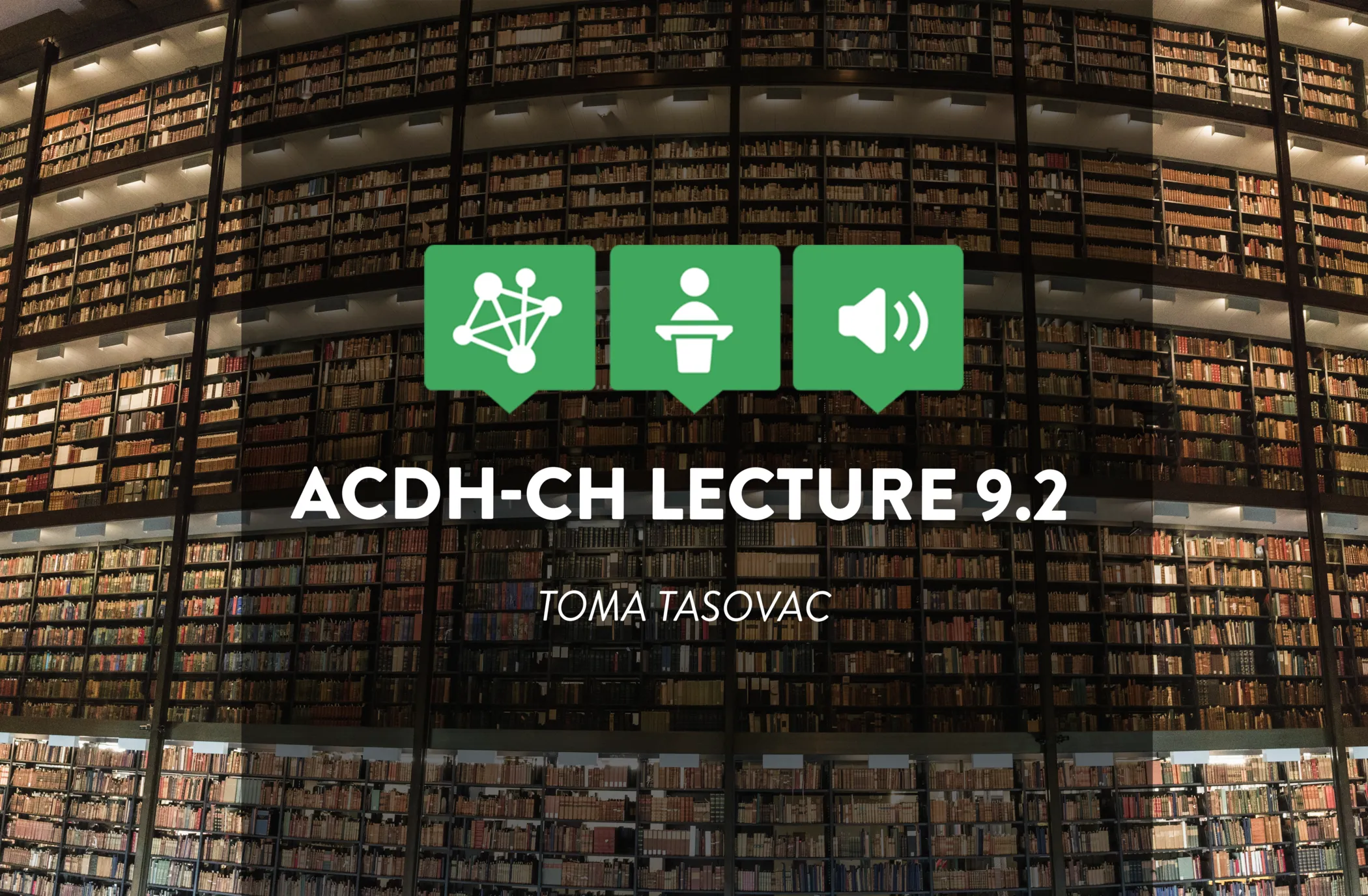
ACDH-CH Lecture 9.2
Digital Humanities and the (Unsurprising?) Tenacity of the Print Mind
When: Wednesday, May 3rd, 2023; 17:00 – 18:30
Where: hybrid
Akademie Campus – Seminarraum 1,
Bäckerstraße 13, 1010 Vienna & online
Registration: Please register for the Lecture via this link until Tuesday, May 2nd 2023, 12.00.

Toma Tasovac
Digital Research Infrastructure for the Arts and Humanities ( DARIAH-EU )
Digital Humanities and the (Unsurprising?) Tenacity of the Print Mind
The “typographic fixity” made possible by the printing presses in the sixteenth century fully — and lastingly — transformed the human intellectual landscape: our methods of data collection, retrieval and storage, and our patterns of communication.
At the end of the twentieth century, the fluidity of electronic textuality was hyped as potentially revolutionary and liberating, a chance to break free from the linearity of thought, yet to this day we are still governed as much as ever by the notion of texts as atavistic relics of print culture: static objects with unrealized potential and wanna-be books on the imaginary shelves of digital libraries.
In this talk, Toma Tasovac will claim that, despite the ubiquity of electronic textuality and the methodological adventures of distant reading, we remain to a large extent prisoners of the print mind. This has implications for the way we conduct research, create and consume digital editions, build and annotate linguistic corpora, as well as the way we design interfaces, conceptualize metadata and implement annotation workflows.
The question is: can we ‘do texts’ differently? And should we?
Please RSVP for the onsite-lecture / registerfor the online-lecture.
Toma Tasovac
Toma Tasovac is Director of the pan-European Digital Research Infrastructure for the Arts and Humanities ( DARIAH-EU ). With an academic background in Comparative Literature and degrees from Harvard, Princeton and Trinity College Dublin, Toma Tasovac’s areas of scholarly expertise include historical lexicography and the development of language resources, data modeling, digital editions and research infrastructures.
He is the co-creator of TEI Lex-0: a baseline encoding format for lexicographic data, which has received the 2020 Rahtz Prize for TEI Ingenuity from the TEI Consortium.
He is the co-editor, together with Sally Chambers, of the forthcoming book Digital Humanities: An Introduction for Librarians.